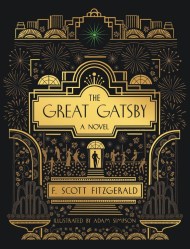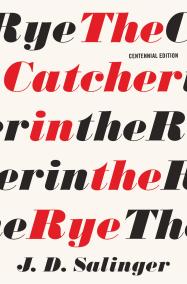Promotion
Use code MOM24 for 20% off site wide + free shipping over $45
Raise High the Roof Beam, Carpenters and Seymour: An Introduction
Contributors
Formats and Prices
Price
$16.99Price
$22.49 CADFormat
Format:
- Trade Paperback $16.99 $22.49 CAD
- ebook (Digital original) $9.99 $12.99 CAD
- Hardcover $25.99 $28.99 CAD
- Trade Paperback $15.99 $21.99 CAD
- Mass Market $9.99 $12.99 CAD
This item is a preorder. Your payment method will be charged immediately, and the product is expected to ship on or around November 6, 2018. This date is subject to change due to shipping delays beyond our control.
Also available from:
The last book-length work of fiction by J. D. Salinger published in his lifetime collects two novellas about “one of the liveliest, funniest, most fully realized families in all fiction” (New York Times).
These two novellas, set seventeen years apart, are both concerned with Seymour Glass–the eldest son of J. D. Salinger’s fictional Glass family–as recalled by his closest brother, Buddy.
“He was a great many things to a great many people while he lived, and virtually all things to his brothers and sisters in our somewhat outsized family. Surely he was all real things to us: our blue-striped unicorn, our double-lensed burning glass, our consultant genius, our portable conscience, our supercargo, and our one full poet…”
Genre:
- On Sale
- Nov 6, 2018
- Page Count
- 256 pages
- Publisher
- Back Bay Books
- ISBN-13
- 9780316450751
Newsletter Signup
By clicking ‘Sign Up,’ I acknowledge that I have read and agree to Hachette Book Group’s Privacy Policy and Terms of Use







